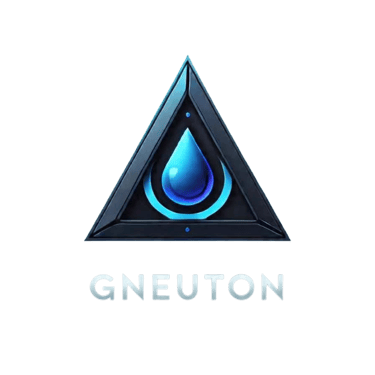Gas Turbines and Zero-Energy Distillation: Transforming AI Infrastructure into a Regenerative Water Asset
What if your local hyper-scale AI data center could purify water instead of just consuming it? What if gas turbine power plants became community assets instead of environmental liabilities? Gneuton’s Zero-Energy Distillation flips the script by turning gas turbine waste heat into fresh water & transforming infrastructure into regeneration. This isn’t just sustainability. It’s stewardship. Discover how AI, energy & water converge to reshape the future.
Brad Martineau
11/11/20255 min read


Reimagining Energy Infrastructure: From Resource Consumption to Regenerative Potential
The rapid expansion of hyper-scale AI data centers and modern gas turbine power plants presents both a challenge and an opportunity for sustainable AI data center infrastructure. As these facilities grow in size and complexity, their demand for energy and water intensifies.
In response, new AI data centers are adopting closed-loop cooling systems and new gas turbine power plants are shifting to dry-cooling technologies to reduce their dependence on freshwater. While these innovations mark a significant step toward fresh water conservation, they also introduce new limitations.
Gneuton’s Zero-Energy Distillation system provides a powerful advancement by enabling existing gas turbine infrastructure to evolve into a viable source of fresh water purification, thereby moving beyond conservation toward regeneration. This approach not only enhances operational efficiency but delivers tangible benefits to surrounding communities.
The Shift Toward Fresh Water-Conscious Cooling
Hyper-scale AI data centers are increasingly adopting closed-loop cooling systems. These systems recirculate water within sealed circuits, thus minimizing the need for continuous fresh water intake. This shift is driven by growing awareness of water scarcity and the need to reduce environmental impact.
Similarly, new gas turbine power plants are moving away from traditional wet and hybrid cooling methods in favor of dry-cooling technologies. Dry-cooling uses air instead of water to dissipate heat, thereby eliminating the need for large volumes of cooling fresh water.
These transitions reflect a broader industry trend toward resource efficiency. By reducing fresh water withdrawals, closed-loop and dry-cooling systems help preserve local aquifers and protect ecosystems. They also align with regulatory pressures and corporate sustainability goals. However, these systems are not without drawbacks.
Limitations of Closed-Loop and Dry-Cooling Systems
Closed-loop cooling systems, while effective in conserving water, can suffer from thermal inefficiency. As the same water is recirculated, it gradually absorbs more heat, which in turn requires additional energy to maintain optimal temperatures. This can lead to higher operational costs and reduced cooling performance during peak loads.
Dry-cooling systems face similar challenges. Air is a less efficient medium for heat transfer compared to water, which means dry-cooling often requires larger more expensive equipment and more energy. In hot climates, dry-cooling can struggle to maintain adequate performance, potentially compromising the reliability of power generation or data center operations.
Moreover, both systems limit the potential for fresh water reuse. Without a mechanism to regenerate or purify water onsite, facilities remain dependent on external sources for replenishment or rely on chemical treatments that introduce additional costs and environmental concerns.
Gneuton’s Zero-Energy Distillation: A Regenerative Breakthrough
Gneuton’s Zero-Energy Distillation system addresses these limitations by leveraging the waste heat from gas turbine exhaust to purify water. This patented technology does not require additional electricity or thermal input. Instead, it captures and repurposes the heat already generated during turbine operation to drive a thermal distillation process. The result is clean, chemically stable water that can be reused for cooling, cleaning, or even local agricultural irrigation.
Importantly, this system also prevents the gas turbine’s exhaust heat from being vented directly into the atmosphere. By redirecting the thermal energy into a productive distillation cycle, Gneuton’s system acts as a natural particulate matter scrubber. The process reduces the dispersion of fine particles and other pollutants that would otherwise be carried by hot exhaust plumes. This contributes to improved air quality around the facility and lowers the environmental burden typically associated with combustion-based energy generation. In regions where air pollution is a public health concern, this passive scrubbing effect offers a meaningful co-benefit that enhances the system’s overall ecological value.
Gneuton’s system is designed for seamless integration with existing infrastructure. It can be retrofitted into operational gas turbine power plants or embedded into new facilities without disrupting core operations. For AI data centers equipped with gas turbine backup generators, Gneuton’s system offers immediate deployment. It utilizes the exhaust heat from these generators to purify brackish water or third-party wastewater, such as produced water from nearby oilfields.
By transforming waste heat into a valuable resource, Gneuton’s system enhances the utility of every combustion event. The electricity generated by the turbine powers IT or auxiliary systems, while the thermal energy purifies water. This dual-function approach improves water use efficiency, carbon use efficiency, and overall power use efficiency.
Maximizing Existing Infrastructure for Community Benefit
The strategic value of Gneuton’s system lies in its ability to convert existing gas turbine infrastructure into a regenerative asset. AI data centers and gas turbine power plants are often located near communities that face water stress or lack access to clean water. By deploying Gneuton’s Zero-Energy Distillation, these facilities can produce distilled-quality water onsite without drawing from local fresh water supplies. This reduces competition for water resources and mitigates the impact on consumer pricing.
Furthermore, the purified water can be repurposed for community use. It can support local agriculture, replenish ecosystems, or serve as a backup supply during droughts. This transforms the facility from a fresh water resource consumer into a fresh water resource provider, thereby strengthening its social license to operate and enhancing its ESG profile.
Gneuton’s model also includes full operational responsibility and access to federal, state, and climate-linked tax credits. Facilities receive one hundred percent of eligible credits for the first two years and share in any additional credits thereafter. This creates a financial incentive to adopt regenerative infrastructure while supporting broader sustainability goals.
A New Paradigm for AI and Energy Infrastructure
Gneuton’s Zero-Energy Distillation system represents a paradigm shift in how we think about energy and water infrastructure. Rather than viewing gas turbines as single-purpose assets, this approach unlocks their full potential. By capturing and repurposing gas turbine waste heat, facilities can achieve greater efficiency, resilience and community impact.
This is especially relevant as AI workloads continue to grow. The computational demands of training and running large language models, generative systems, and real-time analytics require massive energy inputs. Cooling these systems efficiently and sustainably is critical. Gneuton’s solution addresses this challenge while simultaneously regenerating fresh water and minimizing environmental impact.
Similarly, gas turbine power plants face increasing pressure to decarbonize and improve resource efficiency. By integrating Gneuton’s Zero-Energy Distillation, these plants can reduce their fresh water intensity, lower emissions per kilowatt-hour and contribute to local water security.
Conclusion: From Infrastructure to Asset
The convergence of AI, energy and water challenges demands innovative solutions. Gneuton’s Zero-Energy Distillation system offers a practical and scalable way to transform existing gas turbine infrastructure into a regenerative asset. It aligns with the industry’s shift toward closed-loop and dry-cooling systems while addressing their limitations. It enhances operational efficiency, reduces environmental impact and delivers tangible benefits to surrounding communities.
As hyper-scale AI data centers and modern power plants continue to expand, the opportunity to repurpose waste heat for water purification becomes increasingly valuable. By embracing this approach, operators can turn their facilities into sources of resilience and regeneration. They can move beyond sustainability to stewardship, redefining what it means to be a responsible and forward-thinking enterprises.
Statements regarding future plans or outcomes of Gneuton reflect current expectations and are subject to change based on operational, regulatory, and environmental factors.
About Bradley J. Martineau
Bradley J. Martineau is the CEO of Gneuton, an innovative technology company delivering massively scalable and affordable, carbon-neutral solution for purifying oilfield produced water and power plant raw water while providing cheap off-grid electricity for AI Data Centers. He is also the Author of the Amazon Best Seller 'The AI-Enabled Executive' and frequently speaks on AI as well as provides strategic and responsible AI consulting for executives and organizations. His new book 'AI & God - Can the Two Coexist?' is coming out on Amazon this week.
DISCLOSURE: The images in this Article were AI-generated. AI was also used in this Article to brainstorm and expand on thoughts and ideas, research articles, and for editing.
DISCLAIMER: The information provided in this article is for general informational purposes only and should not be considered as legal, business, or financial advice. No part of this article is intended to create, nor does it constitute, an attorney-client, financial advisor-client, or professional relationship. You should seek the advice of qualified professionals in the respective fields before making any decisions based on the information provided. Bradley J. Martineau is not responsible for any actions taken or decisions made based on the content of this article.
Innovation
Turning AI Data Centers Fresh Water Positive Now
Efficiency
Sustainability
© 2026. Gneuton. All rights reserved.
Transparency Disclosure: All images & videos on the website were AI generated &/or licensed, except for the profile pictures of the Executive Team.
